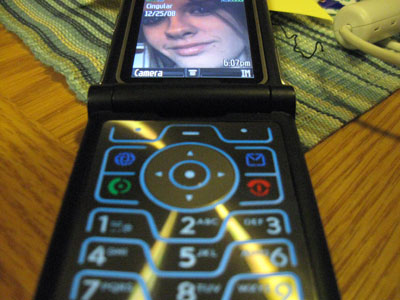All Nonfiction
- Bullying
- Books
- Academic
- Author Interviews
- Celebrity interviews
- College Articles
- College Essays
- Educator of the Year
- Heroes
- Interviews
- Memoir
- Personal Experience
- Sports
- Travel & Culture
All Opinions
- Bullying
- Current Events / Politics
- Discrimination
- Drugs / Alcohol / Smoking
- Entertainment / Celebrities
- Environment
- Love / Relationships
- Movies / Music / TV
- Pop Culture / Trends
- School / College
- Social Issues / Civics
- Spirituality / Religion
- Sports / Hobbies
All Hot Topics
- Bullying
- Community Service
- Environment
- Health
- Letters to the Editor
- Pride & Prejudice
- What Matters
- Back
Summer Guide
- Program Links
- Program Reviews
- Back
College Guide
- College Links
- College Reviews
- College Essays
- College Articles
- Back
Society's Strange Addiction
When asked what object they carry with them all day everyday, most people would say their cell phone. Since the invention of the smartphone transformed society, we are growing more and more attached to these objects-almost to the point of addiction. Go to a restaurant, and you’ll see people on their phone during the meal. Look around a classroom, and kids will be texting under the table. At a party, behind the steering wheel, even in church, people are constantly captivated by these rectangular screens. A study showed that college aged females spend more than ten hours a day on their phone. Think of the time wasted-a little less than half a life. The basic question behind our cell phone obsession is why? Although It’s a complicated issue, it can be generalized to three causes: procrastination, the desire to be informed, and loneliness.
Why is it that people who have the least amount of time to waste, waste the most time? High schoolers are bombarded with hours of homework and after school practices, yet they seem to be spending the most amount of time on their phones. Spending hours on a cell phone has become the definition of procrastination. We’ve all been there-you have a huge history test tomorrow and the last thing you want to do is study. So you think to yourself, “I’ll quickly check Facebook, and then get to work.” An hour later you’ve yet to open your textbook and find yourself on your best friend’s cousins girlfriends brothers page, completely wasting your time. Because the cell phone is always available, and there is always something we should be doing that we’d rather not, our phones have become the enemy of smart time management.
The other addictive property of phones is that they are constantly updating. The more times you hit the refresh button the harder it is to stop. While you should be doing your math homework, but can’t come up with the right information, your phone has already downloaded tons of new information effortlessly and even sends you messages tempting you to view it. Sadly, as your smartphone grows smarter you do not. Humans have the natural urge to know what is going on around them. With social media’s ability to depict what people are doing everywhere, every minute of everyday, this wealth of knowledge becomes monumentus-there is simply not enough time in the day to view it all. The smartphone has destroyed the meaning of ‘too much information’ and with it has taken complete control of our attention.
As the smartphone takes advantage of our limited time and need to be in the know, it is also deceptive in the social aspect. Like a frienemy, the social media that phones offer create a facade of relationships that is not accurate. We may have thousands of ‘friends’ or ‘followers’ who ‘like’ what we say and share, but are these people truly there for us? The need for social fulfillment is exploited by sites like Facebook, Instagram and Twitter, where a certain amount of media attention makes one feel ‘popular’ but not enough makes one feel quite the opposite. Furthermore, being tagged or mentioned online makes one feel included, but viewing photos you aren’t in leads to exclusion. Social media sites on our smartphones are skillfully equipped to allow people to share what they want, and hide their imperfections. The result is a lack of authenticity in virtual profiles, which our smartphones trick us into perceiving as real.
While owning a smartphone has its advantages, there are many ways it can become addicting. It can tempt you to devote your time to it, when you don’t have time to spend. It rings, buzzes, vibrates, chimes, tempting you to “check me!” It creates a world where friends don’t have flaws, and makes you feel as if you are connecting with people when the opposite is occurring. It is unrealistic to state that we should do away with our phones, but people should be more wary of the causes and effects of cell phone addiction. It’s important to be sure your smartphone doesn’t outsmart you.

Similar Articles
JOIN THE DISCUSSION
This article has 0 comments.
